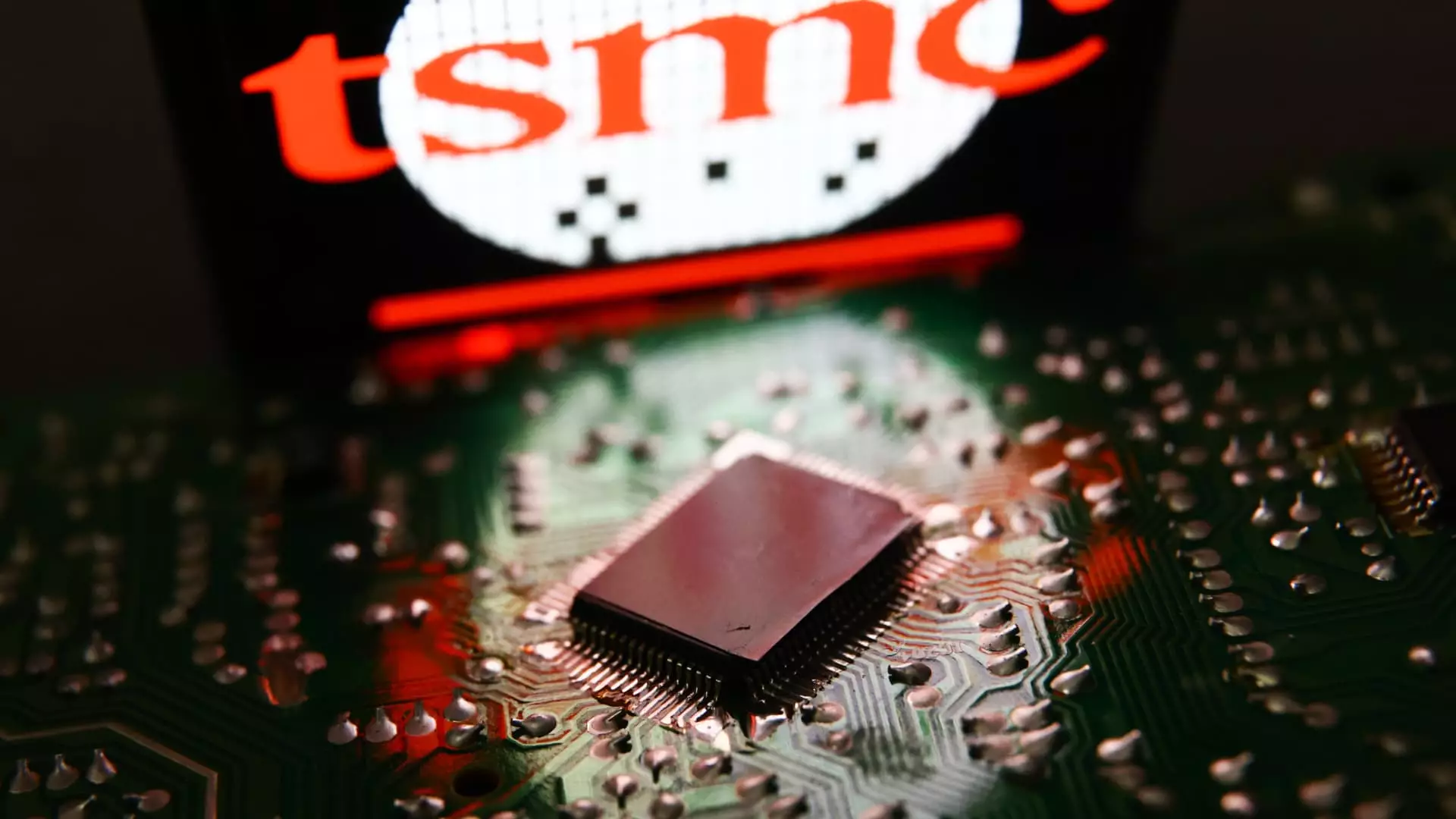The global semiconductor industry is facing significant shifts, particularly in the context of U.S. trade regulations targeting companies in China. A recent development involves the U.S. government ordering Taiwan Semiconductor Manufacturing Co. (TSMC) to halt shipments of advanced chips to Chinese clients, specifically those chips that are integral to artificial intelligence (AI) applications. This article delves into the implications of this directive, the nature of the semiconductor industry, and the geopolitical tensions surrounding technology exports.
Understanding the U.S. Directive Against TSMC
On the heels of a revelation regarding TSMC’s chip being discovered in a Huawei AI processor—potentially violating export controls—the U.S. Department of Commerce has taken decisive action. TSMC has been instructed to cease shipments of chips that are 7 nanometers or more advanced, a category that encompasses those vital for AI accelerators and graphics processing units (GPUs). This restriction is particularly nuanced as it forces TSMC to navigate a complex landscape where compliance and business interests collide.
The immediate context of this order reveals an evolving relationship between technology companies and national security. The action underscores ongoing suspicions surrounding Huawei, a company that remains on a trade blacklist, requiring foreign suppliers to acquire export licenses that are unlikely to be granted. By pushing TSMC to halt shipments, the U.S. aims to bring scrutiny to potential circumvention mechanisms in the export process.
These restrictions are not merely isolated incidents; rather, they represent a growing pattern of regulatory action from the U.S. government against Chinese tech companies. Historically, both parties in the U.S. have expressed concerns over technology transfer to China, citing national security risks associated with advanced AI technologies. This most recent maneuver by the Commerce Department reflects a bipartisan recognition of the inadequacy of existing export controls regarding critical technologies.
The fallout from this directive could have profound implications, not just for TSMC but for the broader semiconductor supply chain. The suspension of shipments not only affects specific deals but could ripple through the industry, impacting research and development initiatives, manufacturing timelines, and even the global competitiveness of silicon-based technologies.
In the face of these developments, TSMC has publicly maintained its status as a law-abiding entity, committed to complying with applicable laws and regulations. However, the company’s move to restrict shipments to China’s Sophgo, a chip designer directly linked to the suspended products, indicates the seriousness with which it is treating these concerns.
The consequences of the U.S. directive extend beyond mere logistics; they could reshape market dynamics within the semiconductor sector itself. As TSMC braces for the operational stranglehold of these regulations, its competitors may have opportunities to fill the gaps left by suspended chips. This scenario may prove especially advantageous for firms outside of U.S. jurisdiction, potentially exacerbating the competitiveness of non-U.S. semiconductor manufacturers.
Moreover, the U.S. government’s expedited communication process—encompassed in what is termed an “is informed” letter—indicates a rapid pivot toward more assertive export controls. This strategic shift enables the U.S. to implement restrictions without the cumbersome timeline of traditional rule-making, thereby allowing it to react promptly to perceived threats.
Challenges abound as the Biden administration prepares to draft more rigorous export regulations. Planned updates targeting approximately 120 Chinese companies within the semiconductor domain signal a larger-scale drive toward tightening control over foreign technology transfers. The complexities of enforcing these new rules could yield unintended consequences, such as stifling innovation domestically or pushing advanced research endeavors to non-compliant countries.
As this situation evolves, industry stakeholders must remain vigilant. Preparing for regulatory changes, adapting business strategies, and fostering relationships in an increasingly fragmented global market will be essential for companies affected by these export restrictions.
The U.S. directive against TSMC represents a pivotal moment in the semiconductor industry, highlighting the intersection of technology, trade policy, and global power dynamics. Investors, manufacturers, and policymakers must navigate this volatile landscape with foresight and adaptability, as the repercussions of these restrictions unfold in the coming months. The semiconductor industry has never been more crucial, nor has it faced such critical challenges that will determine its future trajectory.


Leave a Reply